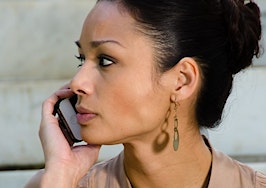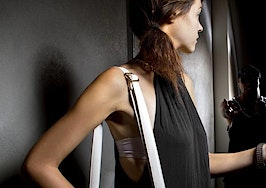- The National Association of Realtors' hosted a safety webinar featuring Paula Monthofer, an Arizona Realtor and well-known safety expert.
As Realtor and safety expert, Paula Monthofer says it’s a jungle out there. And unfortunately, real estate agents are some of the easiest targets; they’re both visible and eager to be kind and available to every potential client that comes their way.
Here are some of Monthofer’s simple and effective tips for increasing personal safety, as shared in a National Association of Realtors webinar today:
1. Secure your open house
Monthofer says open houses set agents as easy targets, which is exactly what a predator is looking for. “We literally put out signs that say there’s a single person sitting in a house this way,” she said.
To make your open houses safer for you and anyone who may come by, she suggests placing a sign in front of the house that says the day’s events will be recorded and live-streamed for safety and training purposes. Next, she says agents need to make sure they require visitors to sign in before they can begin a tour.
Monthofer says a sign-in sheet gives police and other officials a starting point on who to interview or consider a suspect if anything happens.
2. Receive proper weapons training
Monthofer says agents often take a self-defense class and buy a weapon, but they aren’t actually ready to use the tactics they’ve learned.
“If you’re not willing to use it without hesitation and with deadly force, you don’t need a weapon,” she warns.
Monthofer says most people — unless they’ve had a past career as a police officer or soldier — hesitate to actually harm someone else, even when they’re trying to harm you.
So, she suggests that agents avoid carrying weapons because any kind of hesitation gives your attacker the chance to take the weapon and then use it against you.
3. Run in a pack
If possible, have a fellow agent attend open houses and other meetings outside of the office with you, so you’ll have an extra set of eyes and ears to watch out for anything amiss.
4. Put the phone down!
Monthofer shared a story of when she was walking in downtown San Francisco with her eyes glued to her phone. The next thing she knew, two people who had been watching, were standing in front of her. When she looked up, they got scared and walked away.
Monthofer says our cell phones can keep us distracted and give attackers the perfect opportunity to ambush. So, she suggests getting to appointments early to check out the surroundings for anything that seems “off.”
5. Have an escape plan
Before going to an open house or a meeting, create an escape plan. Keep a note of all entrances and exits and strategically park your car so you can’t be blocked in. She says agents need to adopt a motto Marines’ use: “The best course of action is avoidance, deterrence, and de-escalation.”
6. Create a standard of practice for meeting with clients and others
Monthofer says some agents have a habit of being “too eager” to accommodate everyone who asks for a meeting, by meeting anywhere and at any time of the day or night. To combat this, she suggests creating a standard of practice for all meetings that include:
- Guidelines for where you’ll meet. Make it clear that all meetings need to take place at the office or in a public space, such as Starbucks.
- Required consultations. Perform an in-depth consultation before taking someone on as a client. Keep a questionnaire on hand so you can actually listen to their answers and pick up on their body language. She says consultations can prevent you from taking on a client that has ulterior motives.
- Require ID. Don’t take someone’s word that they are who they say they are. Ask them to provide ID as a safety precaution.
- Create business hours. Monthofer says she doesn’t conduct business after 6 p.m. on weekdays and on Sundays. This, she says, teaches clients to respect her time and it keeps her from having to go out at night.
Monthofer says the death of Beverly Carter changed how the industry addresses safety issues and made agents more receptive to safety tips.
“It [Beverly Carter’s death] was a clarion call for the industry,” she says. “Let’s never cease in protecting ourselves.”











